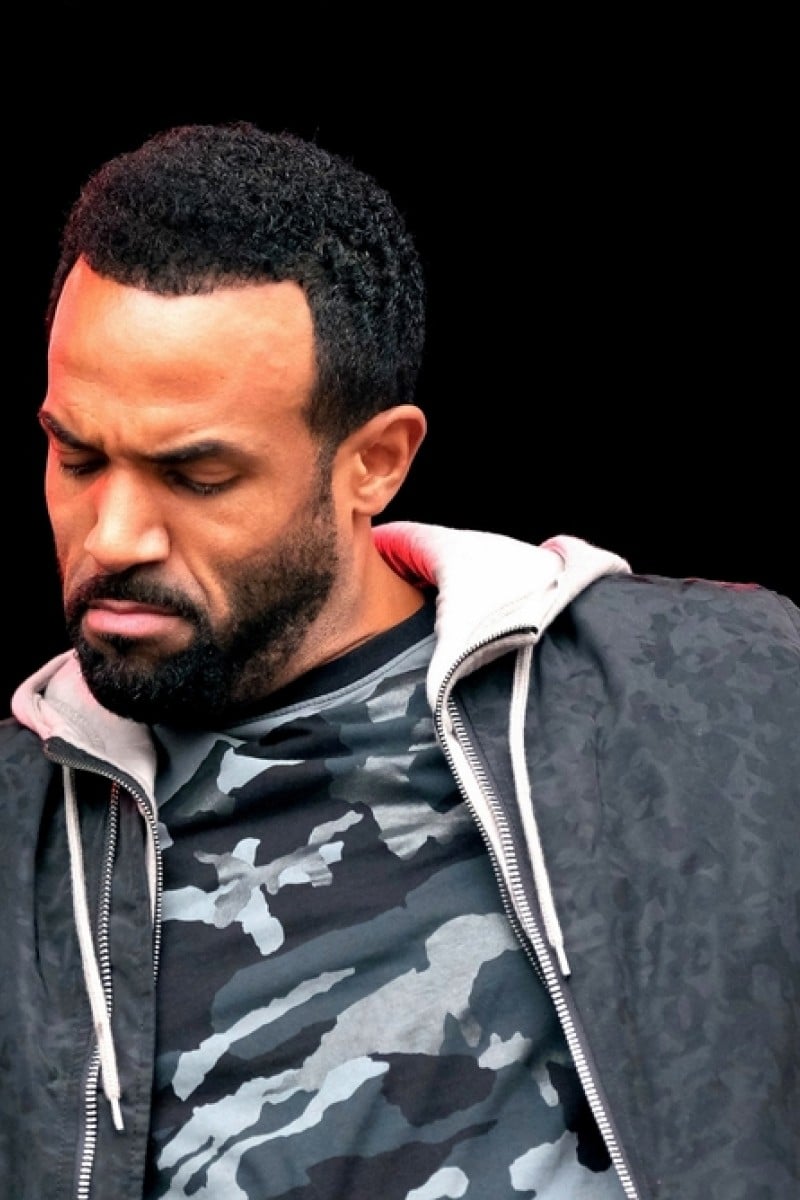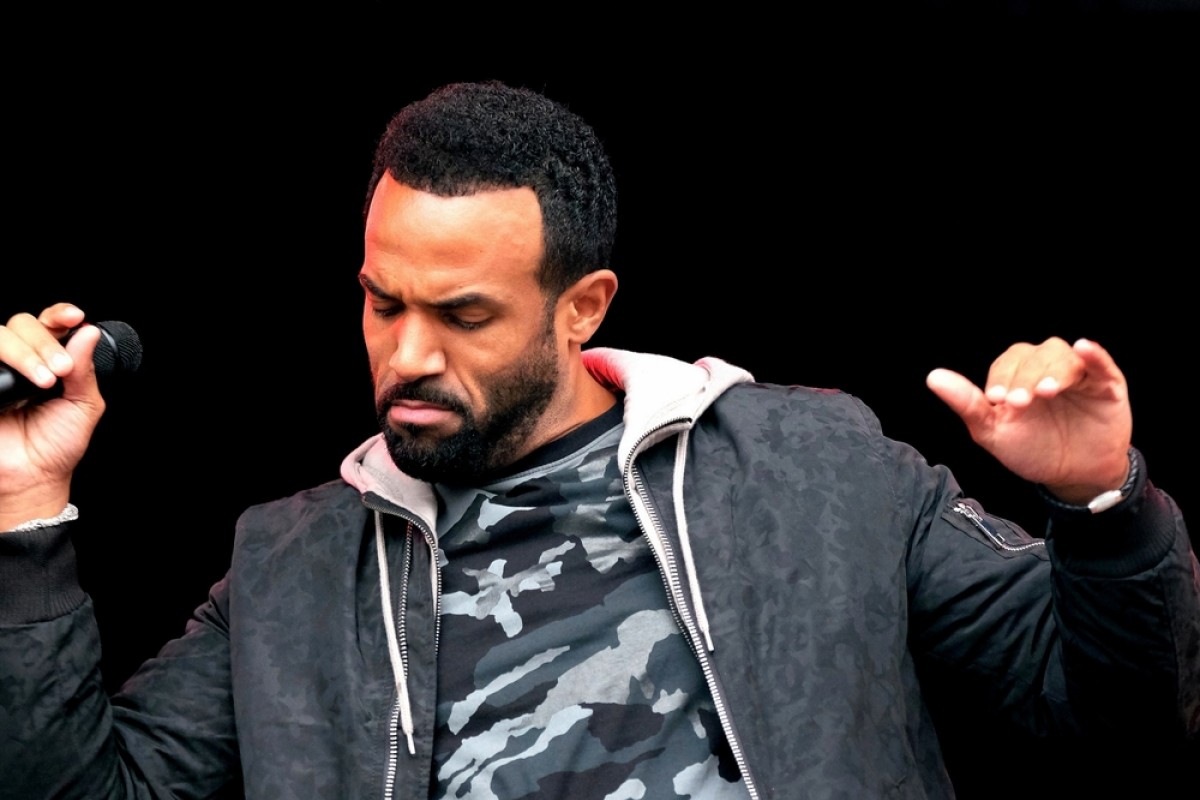
Why Craig David is cool again: a comeback that’s both nostalgic and completely original
The garage music star talks to Young Post about making a comeback and keeping things real
 Almost 10 years after Craig David decided he was Walking Away from fame, he's back in the spotlight.
Almost 10 years after Craig David decided he was Walking Away from fame, he's back in the spotlight.Making a successful comeback in the music industry is hard. Just ask Britney Spears, and she’ll tell you: the struggle is real. But 35-year-old garage artist Craig David has done just that, and not only is he more relevant than ever, his latest album, Following My Intuition, went straight to number one in the UK iTunes charts upon its release this week. Young Post caught up with him on the phone on Tuesday to find out how he has managed to return to the music industry after almost a decade and dominate the charts.
While a lot of artists fight tooth and nail to force their way back on to the scene, for David it was exactly the opposite.
“It came about very naturally ... When I started to make decisions that were about doing things that I just genuinely loved and was passionate about, things started to fall into place,” he says.
He makes it sound like the easiest thing in the world: do what you love and success will follow. But it hasn’t been a smooth ride, and this level of laid-back acceptance is the result of some tough learning curves.
David shot onto the scene as a fresh-faced 17-year-old in 1999, and his debut album, Born to Do It, released in 2000, sold more than 8 million copies and earned multi-platinum status in more than 20 countries. That period also saw some of his most famous hits top the charts, including Walking Away, Seven Days, and Fill Me In.
It seemed he was at the top of his game. But, to cut a long story short, a British comedian called Leigh Francis made one of the characters on his show Bo’ Selecta! a caricature of David, reducing David to a national joke.
Coverage like that might seem impossible to recover from, but if anything, it’s a testament to David’s good nature that he hasn’t let it affect him. David has had his fair share of both good and bad experiences in the music industry, and for any young people who find themselves in the spotlight unexpectedly, this can be hard to deal with.
“Everything I’ve learned along the way is due to experience. So it’s hard to give advice from a place when someone hasn’t experienced it straight away. So I’d say, make decisions based on what feels right to you as opposed to doing it from your head as that’s one thing that’s made a difference for me. Just follow your heart. As your head will tell you a million things, and it tends to put you in the wrong places.”
Young Post asks him how he manages to stay so positive.
“I’ve got a huge filter for negativity. I’ve not got time for it. It’s not like it doesn’t exist; I just choose not to focus on it.”
That’s a great attitude, but it doesn’t explain why he’s topping the charts. When so many others before him have failed, why has David’s comeback been so successful? He admits he isn’t quite sure himself, but it’s probably a combination of the revival of garage music, and a case of being in the right place at the right time.
“I’m in the eye of the storm, so it’s hard to know exactly why, but I can say that there’s been a resurgence of music from the late ’90s and early ’00s, which I can hear in a lot of the latest dance music.”
But there was one moment that stands out to him as a defining point.
“When I released When the Bassline Drops [last year] it was my first time doing a proper garage song,” says David. “There had been people who had touched on it – like Disclosure – but I did just a straight garage song. And I think at that point, it got a younger generation who didn’t know about garage, who were like: ‘Ooh, what’s this?’, and then people who grew up with my music going: ‘Aw man, we feel like we’re 20 years old again and going raving!’ So with this resurgence happening, I couldn’t have timed it any better. It felt like it connected, and I had new music so it wasn’t just me coming back and singing Seven Days.”
So while older fans feel nostalgic reminiscing about his classic hits, younger fans are exposed to a genre that’s once again taking centre stage.
However, although the attention may have shifted to his newer music, it’s impossible not to ask about those iconic tunes, so the question on everyone's lips: is his seven-day method for landing ladies a tried and tested one? David admits that it might have worked in the past, but he says his relationship goals aren’t quite the same as they were when he was 17.
“I’d change that whole thing up right now. As a 17-year-old kid when I wrote that song, there was a lot of testosterone. But as a 35-year-old it’s about taking time, no one needs to be rushing anything, do you know what I mean?”
Yes, yes we do. But all jokes aside, Seven Days is an iconic song that has gained cult status, and has, to some extent, become a synonym for the week itself.
“When people quote Seven Days, to talk about anything, to quote their week – that is the go to song that pops up in your head. That’s crazy to think.”
Having had to perform it countless times, and have random strangers quote the lyrics to him in all sorts of ways (you can’t talk to Craig David and not quote Seven Days), David shares his personal favourite version of the song – replacing the lyrics with the weather report.
In the age of cat videos and viral covers, it’s not hard to see why that version of the song has been so popular, and David is all too aware that you can’t be successful in 2016 without a strong social media presence.
Buzzfeed called his Instagram the best thing on the internet, and while he says he loves responding to people on Twitter, he likes Instagram because it’s great for capturing a single moment.
“Instagram is just like a moment, to give you a little window into behind the scenes ... it’s personal,” he says.
But David hasn’t just made the most of Instagram and Twitter. His Radio One Live Lounge cover of Justin Bieber’s Love Yourself went viral, and even for someone who has 355,000 followers on Twitter, 5 million hits is something to get excited about.
“I knew something had happened because then Radio One started posting about it, and I thought: ‘Why are Radio One posting about the song? I did it for One Extra, the sister station.’ And what had happened was that it had hit the limit that One Extra could go. They’d never had that many hits on a video before. And they had to take it down and put it back up on Radio One so that it wouldn’t be geolocked, so that the world could actually connect to it.”
While not all of will be able to relate to the problem of having too many hits on our viral videos, we can relate to his experiences of Hong Kong.
Having performed in the city back in 2004, and at Art Basel earlier this year, David has a lot of fond memories of the city.
“What I love about coming out is that people will take you to the local spots, and tell you: ‘You need to try this,’” laughs David. “And I kinda love that element, because culturally it’s so different. I always have a different experience every time I come out.”
And he has a lot of respect for the Hong Kong crowd, who won’t go wild unless they feel the performer deserves it.
“Sometimes it feels slightly more reserved at the start of the performance,” he says. “But I think that’s kind of out of a respect thing as opposed to they’re not feeling ready to go crazy. But then, by the end of the show, it’s like, oh man, people are going nuts for it. And that’s what I kind of love. It’s like ‘OK, we’ll hear what you’ve got to do.’ Then people turn up.”
Just like Hongkongers, David doesn’t feel the need to follow the crowd or do things just because others expect him to. Part of what makes him so easy to talk to, and arguably the reason behind his successful comeback, is his genuine nature, and the strong sense that he’s not trying to be anyone but himself. This individuality and confidence to walk his own path is also reflected in his music – even when it comes to covers.
“There’s no point just singing the song identically to the person who sang it before. I noticed that when I did Love Yourself. I added a garage beat to it, and threw a little rap into the mix, and it caught fire. And I was like, wow, what’s happened here, we just put some garage beats on it and some raps.”
He has plenty of his own stuff to be focusing on right now, but if he could collaborate with anyone, it would be Beyonce (who wouldn’t?).
Talented, humble, and genuine; it’s not hard to see why Craig David is still at the top of his game – and the charts.